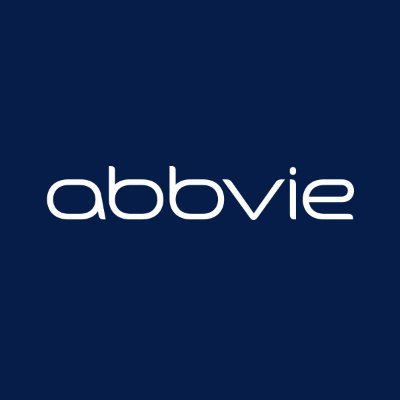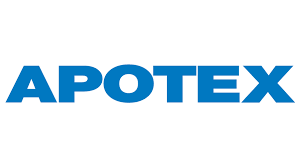Date: 18 Jan 2025
Job Location: Semicon Park, Bengaluru
Reporting to: Operating Unit Head, Clinical Development
Pay Grade:
Years of Experience: 15+ years
Syngene International Ltd. is an integrated research, development, and manufacturing solutions company. It serves the pharmaceutical, biotechnology, nutrition, animal health, consumer goods, and specialty chemical sectors globally. With over 4500 scientists and a strong innovation-driven approach, Syngene collaborates with leading companies such as Amgen, Baxter, Bristol-Myers Squibb, GSK, and Merck KGaA. The company operates extensive discovery, development, and manufacturing facilities.
The Head of Quality Control Review plays a pivotal role in ensuring that the Clinical Development Operating Unit (OU) meets and exceeds quality standards. The role involves supporting the operating teams to enhance quality control, SOP refinements, and maintaining "anytime audit readiness."
Track Quality Metrics:
Support operating teams to track and sustain quality metrics that ensure performance and compliance across all departments, meeting both regulatory and internal standards.
Enhance SOPs & Processes:
Lead initiatives to refine SOPs and workflows in collaboration with operating teams, enhancing operational efficiency and regulatory compliance.
Audit Support:
Assist in regulatory audits, internal audits, and inspections by ensuring compliance with laws and standards.
Error Minimization & Process Improvement:
Collaborate with section heads and the QA team to reduce errors, fostering a culture of continuous improvement and compliance.
Quality Control Issues Management:
Address quality control issues by collaborating with operational teams and implementing corrective action plans.
Audit Readiness:
Maintain a state of “anytime audit readiness” by conducting regular internal reviews and implementing robust quality control systems.
Continuous Improvement:
Support operating teams in process simplification and driving quality improvement initiatives to sustain world-class quality KPIs.
Quality Control Plan Execution:
Oversee and implement the QC Review Plan for each study, ensuring that it aligns with required standards.
Monitoring & Oversight:
Monitor protocol compliance, documentation, and conduct clinical study reviews to maintain data integrity.
Quality Control Processes:
Define processes for managing and approving source documents, verifying inclusion/exclusion criteria, and ensuring data consistency.
Documentation & Compliance:
Ensure that all QC observations are addressed in a timely manner before data entry and that the QC Review process is thoroughly documented.
Client & Team Interaction:
Meet regularly with clients to discuss protocol adherence, resolve deviations, and report on QC observations.
Regulatory Documentation:
Ensure the regulatory/TMF binder is ready for archiving by overseeing the QC review process at the conclusion of the study.
Data Integrity & Review:
Conduct checks on data integrity across method development, validation, and sample analysis.
Collaborative Problem Solving:
Work with study directors to identify errors, propose solutions, and establish corrective actions.
Audit Support:
Assist in audits to ensure compliance with regulatory and internal standards.
Quality Control of Laboratory Practices:
Review laboratory logbooks, calibration records, and ensure the facility’s compliance with regulatory standards.
Data Trend Analysis:
Support quality transformation initiatives by analyzing monthly QC observations.
Quality Control Checks:
Oversee pre-analytical, analytical, and post-analytical activities to ensure they meet QC standards.
Data Verification:
Ensure manually transcribed data is accurate and aligns with worksheets, guaranteeing data integrity.
Logbook Management:
Maintain controlled logbooks, ensuring records are legible and compliant with lab standards.
Instrument Maintenance & Calibration:
Ensure all lab equipment is regularly maintained and calibrated to meet industry standards.
System Reviews:
Conduct internal reviews of the Clinical Trial Management department and Clinical Supply Unit to ensure compliance with GCP, SOPs, and regulatory requirements.
SOP and Training Review Coordination:
Oversee SOP reviews and ensure training binders reflect current practices and standards.
Quality Issue Reporting:
Report quality issues promptly and ensure reporting aligns with established operating procedures.
Syngene Clinical Supply Unit QC Checks:
Perform quality checks on the Clinical Supply Unit as part of oversight for system integrity.
EHSS Leadership:
Champion effective Environment, Occupational Health, Safety, and Sustainability (EHSS) practices and compliance.
People Leadership:
Lead with the Syngene leadership framework, focusing on talent retention, career planning, and people management.
Foster Corporate Culture:
Drive a culture of quality, collaboration, and integrity across the organization.
Syngene is committed to providing equal employment opportunities (EEO) to all individuals, regardless of age, color, national origin, disability, race, religion, gender, or any other characteristic protected by applicable legislation. Reasonable accommodations will be provided for qualified individuals with disabilities.






Gujarat :
Ahmedabad | Ankleshwar | Baroda | Bharuch | Gandhinagar | Gujarat | Halol | Jhagadia | Mehsana | surat | Tarasadi | Vadodara | Vapi |Maharashtra :
Airoli | Ambernath | Amravati | Aurangabad | Dhule | Dombivali | Jalgaon | Kolhapur | Kurkumbh | Kurla | Madhapur | Mumbai | Nagpur | Nashik | Navi Mumbai | Pune | Pune city | Shirpur | Tandalja | Tarapur | Thane | Vikhroli | Yerawada |Haryana :
Ambala | Gurugram | Haryana | Hisar | Kurukshetra | Panchkula | Rohtak | Shivalik |Andra Pradesh :
Anakapali | Anantapur | Bhimavaram | Chittoor | Guntur | Gurgaon | Kakinada | Mangalagiri | Nellore | Pydibimavaram | Tirupathi | Vijayawada | Visakhapatnam |Tamil Nadu :
Annamalainagar | Chennai | Coimbatore | Erode | Madurai | Nagercoil | Ooty | Pudupakkam | Srivilliputtur | Tiruchirappalli | Trichy | Vellore | Yogyakarta |Himachal Pradesh :
Baddi | Solan |Rajasthan :
Banasthali | Bhiwadi | Jaipur | Pilani | Udaipur |Karnataka :
Bangalore | Belgaum | Bengaluru | B.G Nagara | Bommasandra | Colorado | Czech Republic | Karnataka | Mangaluru | Mysore | Udupi |Punjab :
Bathinda | Bela | Chandigarh | ludhiana | Moga | Mohali | Patiala | Phagwara | Rajpura |Madhya Pradesh :
Bhopal | Dewas | Gwalior | Indore | Khandwa | Khargone | Pithampur | Ujjain |Odisha :
Bhubaneswar | Rourkela |Chhattisgarh :
Bilaspur | Eot Municipality | Raipur |Uttarakhand :
Dehradun | Halifax | Nainital | Rishikesh | Roorkee |Delhi :
Delhi | India | New Delhi | PAN-India |Assam :
Dibrugarh | Diburghar | Guwahati |West Bengal :
Digha | Kolkata | Mukundapur |Uttar Pradesh :
Gajraula | Gautam buddha Nagar | Ghaziabad | Gorakhpur | Greater Noida | Jhansi | Lucknow | Mathura | Noida | Park City | Prayagraj | Satyamev | Varanasi |Goa :
Goa | Panaji | Verna |Bihar :
Hajipur | Patna |Kerala :
Kannur | Kochi | Malappuram | Thiruvananthapuram | Trivandrum |Pondicherry (Puducherry) :
Pondicherry (Puducherry) |Jharkhand :
Ranchi |Sikkim :
Rangpo |India :
Siliguri |Illinois :
Abbott Park | Bloomingdale | Champaign | Chicago | Deerfield | Glenview | Lake Forest | Lombard | Naperville | Norridge | Park RIdge | Round Lake |Maryland :
Aberdeen | Baltimore | Bel Air | Cheverly | Columbia | Elkridge | Gaithersburg | Largo | Linthicum | Rockville | Towson | Upper Marlboro | White Plains |Texas :
Abilene | Arlington | Austin | Boerne | Brenham | Bulverde | Carrollton | Cedar Hill | Corpus Christi | Corsicana | Dallas | Denton | El Paso | Fort Worth | Garland | Houston | Lakeway | Longview | Mcallen | North Richland Hills | Plano | Richardson | San Antonio | Seguin | Tyler | Waco |California :
Adelanto | Alameda | Albion | Arcata | Atherton | Berkeley | Brisbane | Burlingame | Burney | California | Carlsbad | Crescent City | Davis | Downey | El Monte | El Segundo | Emeryville | Eureka | Fortuna | Foster City | Fremont | Glendale | Hayward | Hoopa | Irvine | La Jolla | Los Angeles | Martinez | McKinleyville | Menlo Park | Millbrae | Milpitas | Morgan Hill | Mountain View | Nevada | Novato | Oakland | Orange | Pacheco | Palo Alto | Pasadena | Pleasanton | Pomona | Redding | Redwood City | Riverside | Roseville | Sacramento | San Bernardino | San Carlos | San Diego | San Francisco | San Gabriel | San Jose | San Mateo | San Rafael | Santa Clara | Santa Cruz | Santa Monica | Simi Valley | Soledad | South San Francisco | Stanford | Stanton | St. Helena | Stockton | Sunnyvale | Temecula | Thousand Oaks | Valencia | Vallejo | West Sacramento | West Valley City | Whittier | Willits |New York :
Albany | Biddle | Brooklyn | Buffalo | Hauppauge | Hawthorne | Hicksville | Ithaca | Middleburgh | Morningside Heights | New York | Pearl River | Poughkeepsie | Rensselaer | Rhinebeck | Syracuse | Utica | Watertown |New Mexico :
Albuquerque | Farmington | Santa Fe | Tucumcari |Pennsylvania :
Ambler | Bethlehem | Collegeville | Harrisburg | Lancaster | Marietta | Middletown | Philadelphia | Pittsburgh | Plymouth Meeting | Pottstown | Radnor | Sellersville | Southampton | Spring House | West Chester | Wyomissing |Alaska :
Anchorage | Barrow | Bethel | Juneau | Sitka | Wrangell |Massachusetts :
Andover | Billerica | Boston | Cambridge | Devens | Lexington | Massachusetts | Medford and Somerville | Rockland |Wisconsin :
Appleton | Kenosha | Pleasant Prairie | Portage | Waukesha |United states :
Arizona | Buffalo Grove | Clayton | Downers Grove | fairmont | Georgia | Keene | Michigan | Mt. Pleasant | New Jersy | OH | Piedmont | Salisbury | United States | Whitesboro | Winston-Salem |Georgia :
Atlanta | Augusta | Rome |Maine :
Bangor | Brewer |New Jersey :
Basking Ridge | Bloomfield | Branchburg Township | Bridgewater | Brunswick | Burlington | Charlotte | Clark | Cranbury | Dunellen | East Brunswick | Edison | Fairfield | Far Hills | Flemington | Hackensack | Hopewell | Indianapolis | Jersey City | Linden | Livingston | Lyndhurst | Mahwah | Monmouth Junction | Montville | Mount Arlington | Newark | New Brunswick | Nutley | Paramus | Parsippany | Passaic | Paterson | Peapack-Gladstone | Pine Brook | Piscataway Township | Plainsboro | Princeton Junction | Rahway | Raritan | Somerset | Somerville | South Plainfield | Sparta | Summit | Titusville | Trenton | Warren Grove | Westfield | West Orange | Wharton | Whippany |Ohio :
Batavia | Blue Ash | Cincinnati | Cleveland | Columbus, | Dayton | Erie | Evendale | Franklin | Hamilton | Huber Heights | Kings Mills | Macedonia | Mason | Milford | Montgomery | Norwood | Oregoina | oxford | Waynesville |LA :
Baton Rouge | Monroe | New Orleans |Washington :
Bellevue | Bothell | Friday Harbor | Goldendale | Mount Vernon | Pullman | Seattle | Sherwood | Tacoma | Vancouver |Oregon :
Bend | Coquille | Corvallis | Eugene | Florence | Grants Pass | John Day | Lake Oswego | Lakeview | Portland | Reedsport | Roseburg | Salem | Springfield | Woodburn |Wyoming :
Big Piney | Cokeville |Alabama :
Birmingham |Virginia :
Blacksburg | Charlottesville | Falls Church | Mechanicsville |Indiana :
Bloomington | West Lafayette |Florida :
Boca Raton | Brooksville | Clearwater | Cooper City | Coral Gables | Coral Springs | Daytona Beach | Florida | Gainesville | Hollywood | Jacksonville | Maitland | Marsa | Miami | Naples | North Miami Beach | Orlando | Pembroke Pines | Plantation | Port St. Lucie | Rueil-Malmaison | Saint Petersburg | Sarasota | Stuart | Tallahassee | Tampa | West Palm Beach | Winter Haven |Idaho :
Boise |Colorado :
Boulder | Denver | Westminster |Connecticut :
Bridgeport | Bristol | Enfield | Groton | Hartford | New Haven | Newtown | South Windsor | Stamford | Storrs | West Hartford |North Caroline :
Carolina Beach | Chapel Hills | Durham | Holly Springs | Morrisville | Philippines | Raleigh | Rocky Mount | Sanford | Scottsdale |Arizona :
Chandler | Kingman | Lake Havasu City | Mesa | Peridot | Phoenix | Surprise | Tempe | Tucson | Yuma |South Carolina :
Charleston |Kansas :
Chengdu | Garden city | Kansas City | Lawrence | McPherson |North Carolina :
Concord | Lumberton | North Carolina |Michigan :
Detroit | Houghton Lake | Macomb | Southfield |North Dakota :
Dickinson |Minnesota :
Duluth | Eden Prairie | Fridley | Hibbing | Maple Grove | Minneapolis and St. Paul, Minnesota. | Minnetonka | St.Paul |Kentucky :
Edgewood | Ft MItchell | Louisville | Shelbyville |Arkansas :
Fort Smith |Kington :
Frank Scottile Blvd |Missouri :
Fulton | Milan | St. Louis |United States :
Hawai | kentucky | Sylmar | Woonsocket |Nebraska :
Hebron | Nebraska City |Hawaii :
Hilo | Honolulu |Tennessee :
Knoxville | Memphis | Nashville |Louisiana :
Lake Charles | Shreveport |Nevada :
Las Vegas | Tonopah | Tonopsh | Virginia |New Hampshire :
Lebanon | Macon | Manchester |Portugal :
Lisbon | Oeiras | Portugal |WI :
Madison | Wausau |Republic of Mexico :
Mexico |northeastern :
New Hampshire |Oklahoma :
Oklahoma City |Puerto Rico :
San Juan |Albama :
Tuscaloosa |D.C :
Washington |Delaware :
Wilmington |North Rhine Westphalia :
Aachen | Bielefeld | Bochum | Bonn | Cologne | Dortmund | Duisburg | Dusseldorf | Munster |Munich :
Bavaria |Bavaria :
Bayreuth | Erlangen | Munich | Regensburg | Wurzburg |Brandenburg :
Berlin |Baden-Wurttemberg :
Biberach an der Riß | Freiburg | Grenzach | Heidelberg | Karlsruhe | Konstanz | Stuttgart | Tubingen | Ulm |Hesse :
Darmstadt | Marburg |Hessen :
Frankfurt | Harveysburg |Germany :
Germany | GErmany |Lower Saxony :
Gottingen | Hannover | Leipzig |Saxony Anhalt :
Halle |Rotherbaum :
Hamburg |Rhineland Palatinate :
Ingelheim am Rhein | Mainz |Schleswig Holstein :
Kiel |Berlin :
Mitte |Mecklenburg Vorpommern :
Rostock |Saarland :
Saarbrucken |Switzerland :
Basel | Zurich |Serbia :
Belgrade | Serbia |Hungary :
Budapest |BULGARIA :
Bulgaria | Vedant |Denmark :
Copenhagen | Denmark |Europe :
Europe | France | Latvia | Lendava | Leuven | Poland | Slovenia | Spain |Finland :
Finland |Istanbul :
Istanbul | Turkey |Norway :
Norway | NOrway |Romania :
Romania |Belgium :
Wavre |Tipperary :
Ballydine |Cork :
Brinny | Ringaskiddy |Carlow :
Carlow |Republic of Ireland :
Cork | Dublin | Limerick | Waterford |Ulster :
Donegal |Meath :
Dunboyne |Dún Laoghaire :
Dún Laoghaire |Galway :
Galway |County Dublin :
Swords |Republic of China :
Beijing |China :
China | Quarry Bay |Liaoning :
Dalian |Zhejiang :
Hangzhou |Tokiyo :
Osaka | Tokyo |Shanghai Sai :
Shanghai Shi |Hubei :
Wuhan |Capital of Netherland :
Amsterdam |North Brabant :
Breda |Noord Holland :
Haarlem |South Holland :
Leiden |Netherlands :
Netherlands |Remote Australia :
Arkansas | Remote Australia |New South Wales :
Ballina | Sydney |Republic of Western Australia :
Nedlands |Queensland :
Queensland |Melbourne :
South Yarra |United Kingdom :
England | Harlow | Leeds | London | Maidenhead | Salt Lake City | Stevenage | Stirling | United Kingdom |North Yorkshire :
Harrogate |South Yorkshire :
Sheffield |Oxfordshire :
Witney |Ontario :
Uxbridge | Renfrew | North York | Australia | Mississauga | Richmond Hill |Canada :
Canada |Quebec :
Montreal |Brussels :
Brussels |Antwerp :
Heist op den Berg |Flemish Brabant :
Zaventem |South America :
Argentina | Peru |Brazil :
Brazil | Sao paulo |Attica :
Athens | Koropi |Greece :
Greece |North Island :
Auckland |New Zealand :
New Zealand |Austria :
Austria |Vienna :
Vienna |Catalonia :
Barcelona |Madrid :
Madrid |Cebu Province :
Cebu City |Philippines :
Manila |Croatia :
Croatia |Zagreb :
Zagreb |Estonia :
Tartu | Estonia |Harju County (Maakond) :
Tallinn |Hà Nội :
Hanoi | Hà Nội |Ho Chi Minh :
Ho Chi Minh City |Italy :
Italy |Lombardy :
Rho |Jakarta :
Jakarta |East Java :
Surabaya |Japan :
Saitama | Japan |Tokyo :
Otemachi |North Ostrobothnia :
Oulu |Southwest Finland (Varsinais-Suomi) :
Turku |Remote Korea :
Remote Korea |Republic of Korea :
Seoul |Kazakhstan :
Almaty |Republic of Thailand :
Bangkok |Israel :
Kfar Saba | Tel Aviv | Be'Er Sheva | Netanya | Yavne |Remote :
Medan | Minnesota | Bountiful | Victoria | Faridabad | Texas | Remote - South America (Latin Americal) | Riga | Lousiana | Remote, USA | Remote | Belgium | French | Lenexa | Green Way | Remote - Middle East | Melbourne | Switzerland | Hammond | Castlebar | Tulsa | Xzagreb | Ireland | Nairobi | Springville | Remote - Africa | Blue Bell | McFarland | Zaragoza | Remote - Europe | Leinster | Manipal | Regulatory Labeling Manager (NA and LATAM Only) | Slovakia | Bishop | Hungary | Thailand |Republic of Colombia :
Bogota |Williamson :
Brentwood |Bucharest :
Bucharest |Buenos Aires :
Buenos Aires |Republic of Egypt :
Cairo |Mexico :
New Mexico | Ciudad de México |Dubai :
Dubai |Makkah :
Rabigh | Khulais | Riyadh | Najran | King Abdullah Economic City | Jeddah |Kuala Lumpur :
Kuala Lumpur |Kyiv Oblast :
Kyiv |Lima Region :
Lima |France :
Paris | Lyon |South Africa :
South Africa | Midrand |Nišava District :
Niš |Bohemia :
Prague |Chile :
Santiago |Bosnia and Herzegovina :
Sarajevo |Singapore :
Singapore |Sofia City :
Sofia |Sweden :
Sweden |Taipei :
Taipei |Mazovia :
Warsaw |